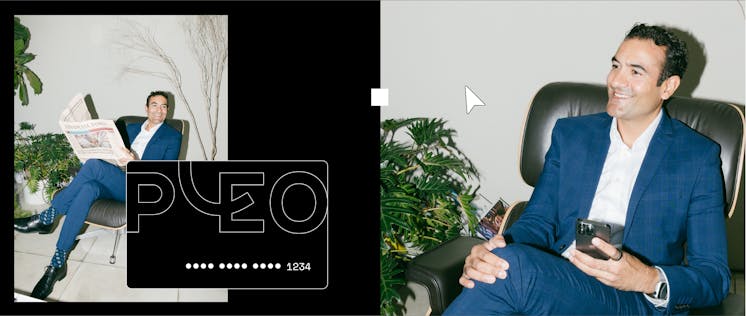
How we protect the Pleo platform from financial crime
Keeping your money - and Pleo - in safe hands is our top priority. As a financial services company, we’re subject to the 5th EU Anti-Money Laundering Directive, which makes sure that businesses like us understand the nature and purpose of customer relationships.
As part of this commitment, we’ve just taken on a new hub for financial crime prevention.
Allow us to introduce you to Lucinity 🤝
We’ll be using Lucinity's software to help us detect suspicious activity (when a company makes a transaction that doesn’t look quite right) and report this to the authorities if necessary. It’s helped us streamline what’s normally a very long-winded process, meaning we can get to the bottom of things much quicker.
The Anti-Money Laundering (AML) solution uses artificial intelligence to support human insights. One of the reasons we chose to partner with Lucinity is because its products are highly scalable, which is ideal given the rate at which we’re growing.
Charlotte, our Compliance Director here at Pleo, praised Lucinity’s “collaborative approach” and “superior interface” as another reason we’re excited to work with them. This is just one way we’re keeping Pleo safe for everyone, but that’s not all…
We pride ourselves on our KYC process
Any company who wants to use Pleo must first go through our KYC (Know Your Customer) process. This is how we verify a business, get to know its ownership structure and identify how much risk they pose to us.
For example, we use KYC to identify if a Company Director has been involved in any criminal activities or to identify any Politically Exposed Persons (PEPs). Some businesses are riskier than others, including cash-based companies and those based in countries with high levels of corruption.
As part of our rigorous KYC process, we’ll ask for details like the company size, registration number, address and VAT registration number as well as proof of identity for key stakeholders. The company will then either be approved, rejected or asked for more information by our Compliance team.
How do we detect suspicious behaviour? 🔍
We go over every transaction made on Pleo with a fine-tooth comb, which is how we establish if a payment is:
- Somewhat suspicious - Our Financial Crime Officer will investigate the transaction and decide if any action should be taken.
- Mostly suspicious - Same as above, but the user’s card will be disabled and they’ll be notified.
- Very suspicious - Same as above, but we’ll also decline the transaction.
There’s more…
Having a security system to spot suspicious activity is one thing. But we’re also incredibly proactive when it comes to taking steps to reduce fraud on our platform.
For starters, we use existing transactional data and data analytics to identify fraud typologies (aka the different methods people carry out fraud). We take the findings and adapt them to our security system which carefully checks all the transactions, giving them a thumbs up or down.
We’re also part of Mastercard's network. This means we’re notified straightaway if there’s a risk to Pleo cards because of a security threat, like a data breach. Being notified of possible attacks before they happen is really handy, as it means we can contact users and replace their cards before any unauthorised transactions are made.
There’s an organisation for financial security in Fintechs which we’re a member of. Through this community, we can share and receive new financial crime typology patterns, which then can be adapted to our security system to check our transactions. Sharing is caring, and it’s especially helpful in these sticky situations.

Smarter spending for your business
Save time on tedious admin and make smarter business decisions for the future. Join Pleo today.
Powered in the UK by B4B partnership
You might enjoy...

Mastering spend management: Avoid gaps in cash flow with Pleo Overdraft
You asked, we listened: Pleo Overdraft is here to give you financial flexibility when you need it most.

Mastering spend management: Easily manage recurring payments with Pleo’s Vendor cards
Your guide to understanding how Vendor cards can work for your business, saving you time and money when managing the digital services you re...

What our customers really think about Pleo
Customer reviews are important for any business to keep track of how their product is doing. We checked out our G2 and Trustpilot reviews to...
